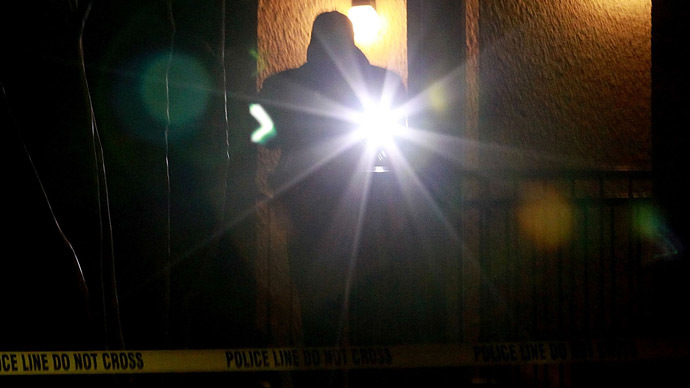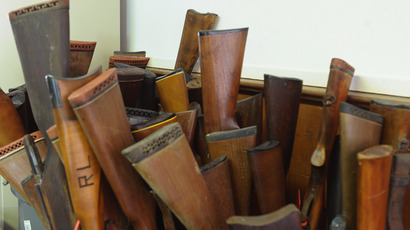Gun-mounted flashlights linked to deadly accidental police shootings

Gun-mounted flashlights may be intended to help police clarify murky situations, but they are increasingly being connected to accidental shootings, according to a new report by the Denver Post.
Following an investigation into the issue – one that proved difficult because of a lack of official record-keeping – the newspaper discovered that over the last nine years, there have been at least five shootings across the United States at the hands of police officers using gun-mounted flashlights. Two of the victims were officers.
As a result of the risk posed by these flashlights, whose switches are often located just below a gun’s trigger guard, police stations are beginning to look at the feature more critically, with some outright banning its use. In Colorado alone, two officers accidentally discharged their guns last year, leading the Denver Police Department to prohibit the use of flashlight switches near the trigger.
"You can't just point guns at people because you have a flashlight," Steve Ijames, a retired police chief who now trains police forces abroad, said to the Denver Post. "I've seen officers use a flashlight-mounted gun to help a person search their wallet for a driver's license. I've literally seen that on a traffic stop."
Specifically, the newspaper found the first flashlight-related gun discharge in Denver occurred in 2013, when an officer searching a homeless camp tried to turn his light in as he opened a tent but instead hit the trigger and released a bullet. Fortunately, the tent was empty and no one was injured.
Other incidents, however, resulted in fatalities. One officer in Plano, Texas, named Ronny Flanagan routinely took safety training courses, was well known for his shooting accuracy, and had a spotless track record up until 2010 – but even that didn’t stop him from accidentally pulling the trigger when he meant to turn on his tactical flashlight.
Flanagan was attempting to shine the light on a suspected drug dealer, but instead he mistakenly discharged his gun and killed Michael Alcala, whose two-year-old son was left without a father as a result. Flanagan himself experienced much guilt over the incident, stating in a deposition that more accidents would occur going forward.
"I don't want anyone to ever sit in a chair I'm in right now," he said, according to the Post. "Think about the officers that aren't as well trained, officers that don't take it as seriously, and you put them in a pressure situation, another accident will happen. Not if, but will."
Just three months later, a New York police officer made the same mistake and shot a 76-year-old man in the stomach.
Initially created for US Navy SEALs, tactical flashlights have made their way onto the civilian market, where training requirements vary from one police department to another. In Detroit, officers are simply not allowed to use them, while in Los Angeles flashlight switches are required to be ahead of the trigger, not below.
Although Flanagan called the gun-mounted flashlight “ludicrous,” other training experts believe they’re worth keeping around despite the potential mishaps, since accidental shootings would still happen in darkened areas with no light source.
"The question is, does the switch need to be in that location, and what are the ramifications?" asked retired officer Steve Ashley. “I would not want something that minimally benefited police officers but put them at a much greater risk of hurting someone."














